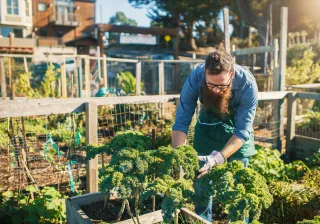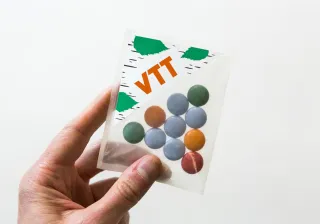In our times, innovation work has become the focus of great expectations: no more and no less than the discovery of revolutionary solutions to global problems and answers to the challenges of sustainable development. What if we would combine deep technology with frugal innovations that emphasise scarcity? Would we then have in our hands the Holy Grail of the regenerative economy?
VTT's CEO Antti Vasara recently highlighted deep technologies that offer revolutionary science- and technology-based solutions to global problems. Frugal innovations, meanwhile, can be described as scarcity-based innovations. They are often geared towards the needs of developing economies, but they can also be held up in developed economies as fitting and desirable concepts that emphasise the spirit of sustainable development. The general definition of frugal innovation is the ability to do more with less, creating more business and social value while minimizing the use of resources such as energy, capital and time (ref: Roosa Hynninen's bachelor's thesis, LUT University).
The third emerging idea in present-day thinking is regenerative economics, through which we would be able to achieve sustainable development. Sitra's Senior Lead Eeva Hellström emphasizes that “we need to get to a situation where the economy both repairs the damage that has already been done and regenerates, meaning that it maintains and develops the building materials of the future, such as our ecological and social capital”.
In a regenerating economy, environmental and social problems are interlinked, which means they must be identified and solved at the same time.
Could the environmental, social and economic objectives of sustainable development be achieved simultaneously through frugal, deep-technology innovations that are resource-wise, achievable, easy-to-use and inexpensive?
Solar Foods, a startup based on a technology jointly innovated by VTT and LUT University, could be seen as a seed of this kind of frugal, deep technology innovation: The technology involved produces protein from carbon dioxide, making it resource-wise by definition, and there is scope for developing production efficiency and product accessibility.
If deep technology were developed in a frugal direction as scarcity-based innovation, could this enable achievement of the UN Sustainable Development Goals? The goals for poverty, hunger, health, well-being, equality, dignity, clean nature, water supply, energy supply, responsible production and consumption, climate friendliness, peace, cooperation and partnerships could be achieved within the structures of a regenerative economy. The challenges must be solved by finding comprehensive solutions to the problems faced.










